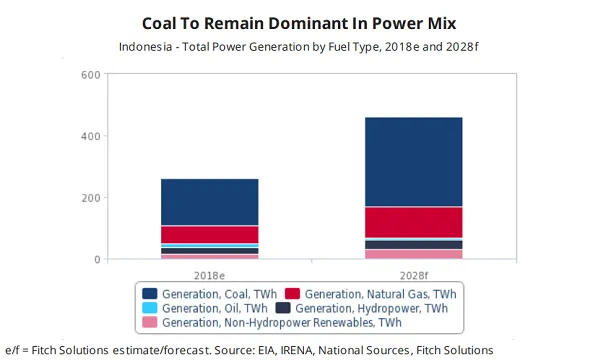
Coal to retain dominance in Indonesia despite push for renewables
Its share in generation capacity is expected to rise to 63.2% in 2028 as shelved projects resurface.
Despite suggestions that President Jokowi signalled intentions to shift away from coal and focus on renewable energy in July 2019, coal is expected to continue to play a dominant role in Indonesia's generation mix and have its generation share rise from an estimated 58.9% in 2018 to 63.2% in 2028, Fitch Solutions said in a report.
Developing a sustainable coal phase-out plan will require a massive overhaul of the existing Electricity Procurement Plan (RUPTL 2019-2028), and the introduction of strong support and incentives for alternatives, which may prove difficult, the firm said. “Our view is informed by the recently revised RUPTL published in February 2019, which projects net generation capacity growth of over 56GW by 2028, with a continued commitment toward coal to meet the country’s power sector expansion.”
Moreover, several large-scale coal power projects that were initially suspended have resurfaced in the latest RUPTL, such as the PLTU Java-3 or PLTU Java-9. Coal power projects also make up a significant majority based on capacity of all power projects in the pipeline; more than 70% of the 9.9GW of capacity developed by state-utility PLN under the FTP 1 was coal-fired, and 10GW of coal-fired capacity is planned under FTP 2.

Furthermore, PLN has taken steps to acquire coal mines and secure long-term coal supplies, including the development of more mine-mouth power projects, which points to its continued coal strategy.
According to Fitch Solutions, the renewables sector in Indonesia has been relatively under-developed despite its potential and continues to face challenges. “The lack of substantial solar and wind capacity in the pipeline is a notable trend and whilst we highlight that there is significant scope for the development of decentralised solar capacity in Indonesia, the outlook for the widespread deployment of utility-scale projects remains subdued,” it added.
The regulatory framework for the sector remains underdeveloped and policy changes in the sector over the last couple of years have created uncertainty and deterred investors, the firm said. “Some existing regulations challenge the development of the sector, such as the cap on feed-in-tariffs, or the new November 2018 regulation on use of Rooftop Solar Power Systems, which ended up disincentivising the sector’s growth instead.”
Local content requirements amidst the underdeveloped solar manufacturing industry, grid curtailment issues and difficulty in attaining a power purchase agreement with PLN, and the generally weak financing climate for renewables also pose a continued challenge.
“Whilst we expect to see growth, it remains limited compared to the expansion plans of coal and gas, as well as in relative comparison to its neighbours in the region,” Fitch Solutions concluded.
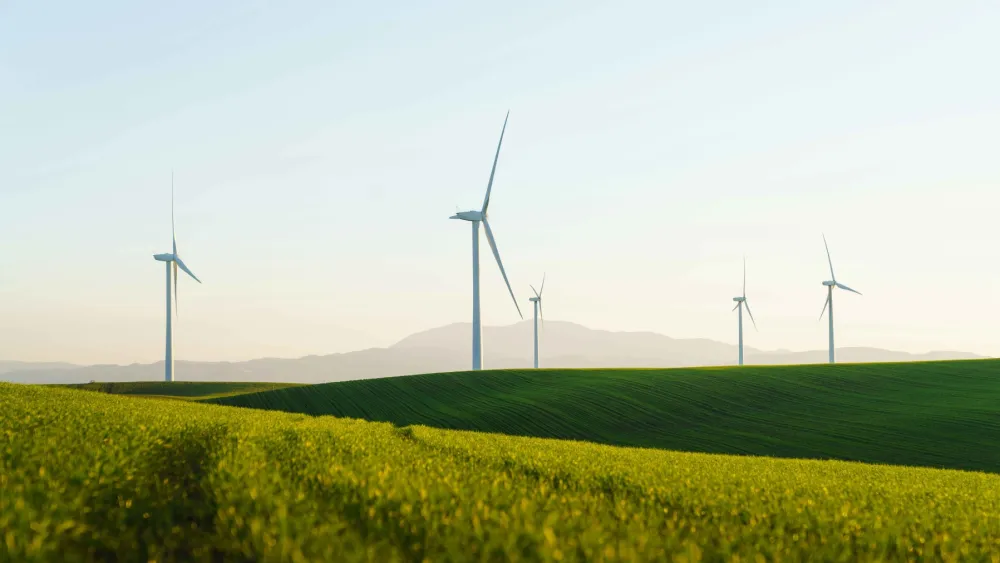

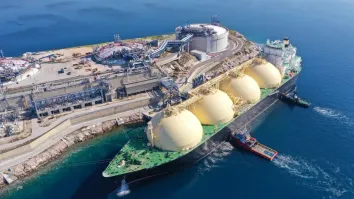

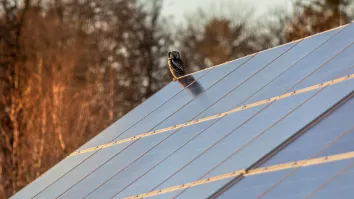
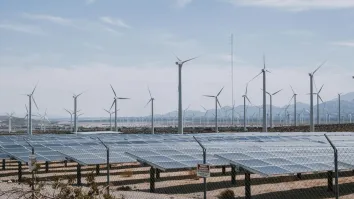













 Advertise
Advertise







